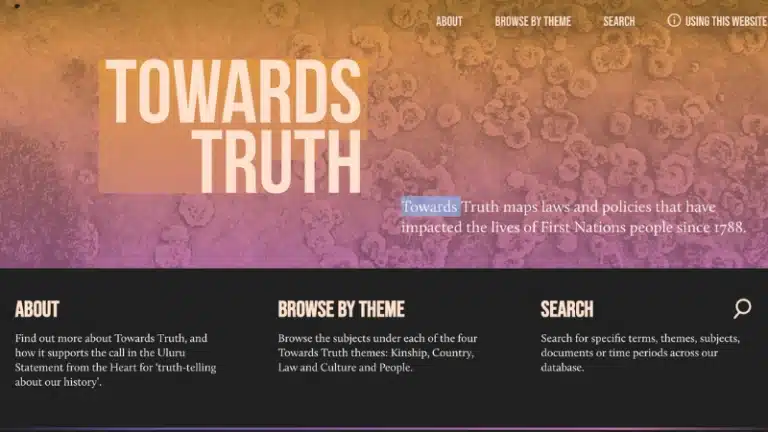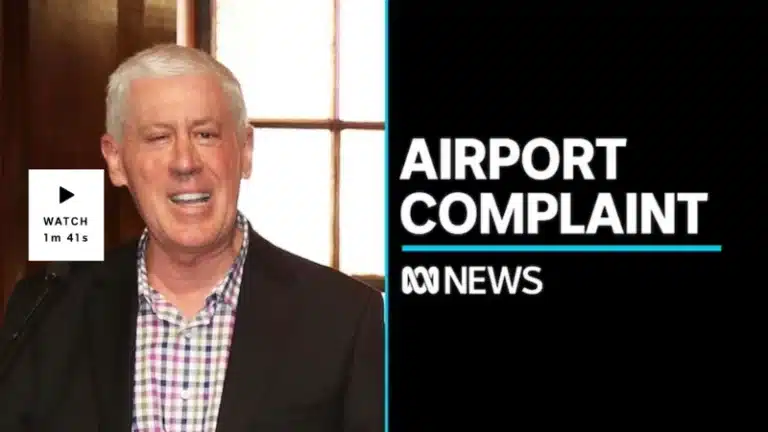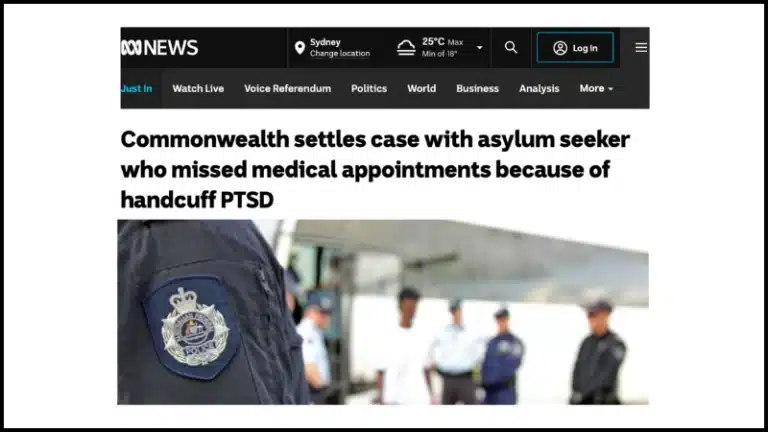The UN Committee on the Rights of Persons with Disabilities has found Australia has breached the rights of people who are blind and vision impaired by failing to meet its obligations under the Convention on the Rights of Persons with Disabilities.
PIAC supported disability rights advocate Lauren Henley to take a complaint to the UN Committee in 2018 after exhausting local complaint mechanisms.
The complaint is based on the Australian Government refusing to mandate any level of audio description on free-to-air TV.
Audio Description (AD) gives verbal narration of important visual elements such as scenes, settings, actions, costumes and on-screen text, so that people who are blind or vision impaired have equal access to programming. The service can easily be turned on or off by the user.
‘Audio description makes me feel included and lets me participate in social and cultural life,’ says Lauren Henley. ‘It means I can watch a show along with friends or family, stay informed about what’s going on in the world, or just sit down in front of the television at the end of the day to unwind – something that many sighted people take for granted.’
The UN Committee called on the Government to identify and remove any barriers to accessing free-to-air tv for people with a disability. This includes updating laws and policies to ensure audio description is available for all broadcasts.
‘I am thrilled with the Committee’s decision, which makes it clear the Australian Government needs to take its human rights obligations to people who are blind or vision impaired more seriously. I am hopeful it will lead to greater equality for our community,’ says Ms Henley.
Despite years of campaigning by Ms Henley, who is blind, and peak representative organisation, Blind Citizens Australia (BCA), the Australian Government has refused to commit to a requirement for audio description beyond limited trials.
‘BCA has been campaigning for audio description for over twenty-five years. Just as captioning is accepted and mandated for people who are deaf or hearing impaired, audio description is the best means of enabling people who are blind or vision impaired to know what is on their screens,’ says Fiona Woods, President of BCA.
‘Audio description means a person who is blind or vision impaired can watch a program in real time with family or friends and enjoy what everyone else in Australia is watching.’
The Australian Government has six months to respond to the Committee and outline the steps it is taking to implement audio description.
Blind Citizens Australia President Fiona Woods
‘Imagine watching Bluey and not realising the characters are dogs or watching Masterchef without knowing what is being plated up. Audio description can have a huge impact on how we receive vital information. We learned how important it was to have an Auslan interpreter at COVID press conferences. Those presentations often included graphs, maps and graphics containing the new rules, which were all inaccessible to people like me without audio description.’
‘While we’ve enjoyed limited hours of audio described programs on SBS and the ABC since 2020, ongoing funding isn’t guaranteed. It has also made us aware of how much is happening on screen that we miss out on. Australia lags behind countries like the UK, US and New Zealand by failing to require commercial broadcasters to provide audio description. All we want is to expand the service so we can enjoy TV like everyone else.’
PIAC Principal Solicitor Michelle Cohen
‘Disability rights activists like Lauren have been asking for equal access to free-to-air television broadcasts for years. It is shameful it has taken a UN complaint to require action.’
‘Australians who are blind or vision impaired should be able to turn on the tele and fully enjoy any show broadcast on our major networks and public broadcasters. The Committee has made it clear that this is their human right, protected by the United Nations Convention on the Rights of Persons with Disabilities.’
‘Now the UN Committee has confirmed action needs to be taken, we’re asking the Government to move quickly to take the necessary steps to ensure audio descriptions are a regular part of TV broadcasts for people who rely on them.’
Background:
The UN Committee on the Rights of Persons with Disabilities findings on the complaint.
Media contacts:
PIAC Media and Communications Manager, Danielle Buhagiar: 0478 739 280
BCA Communications Coordinator, Adriana Malavisi: 0499 079 337


